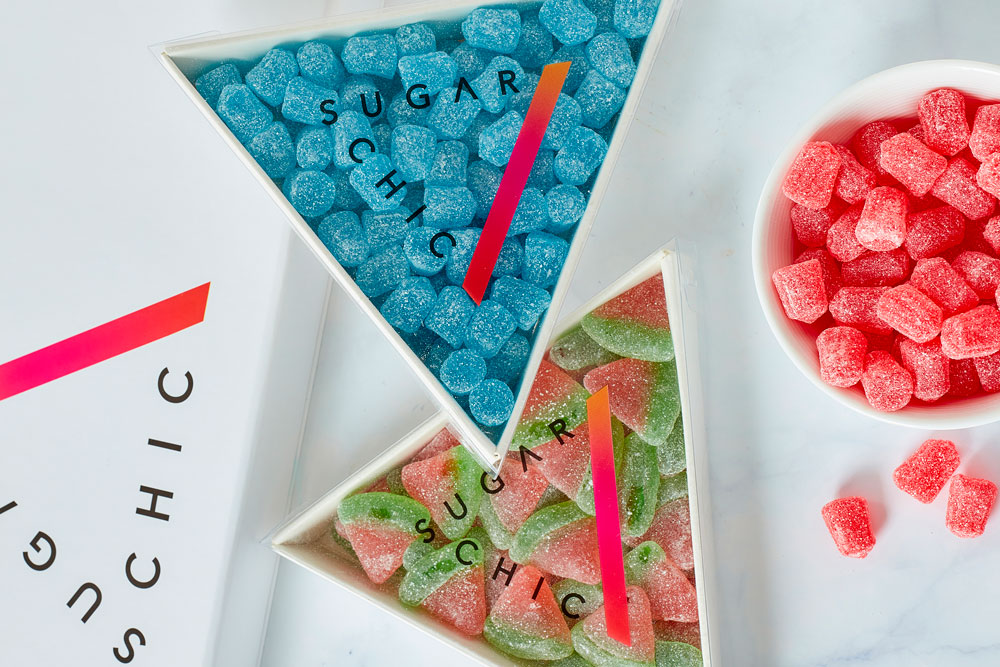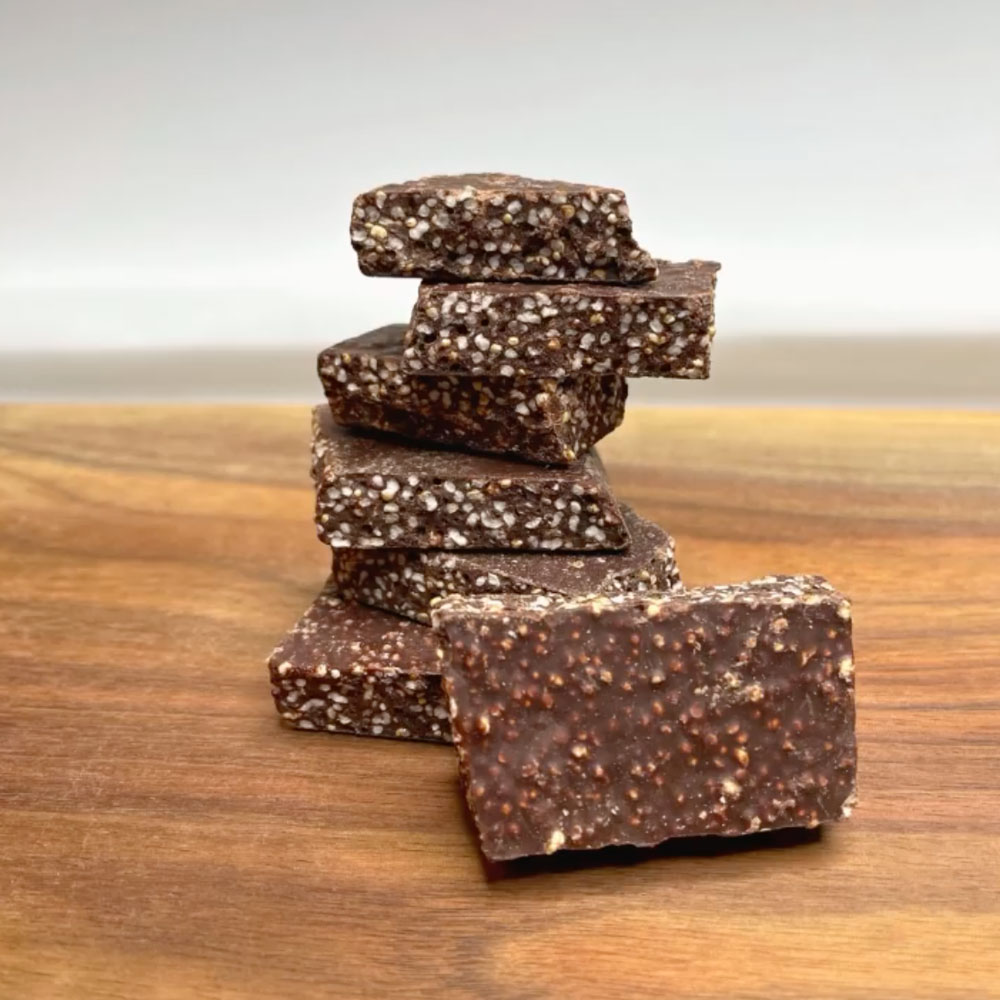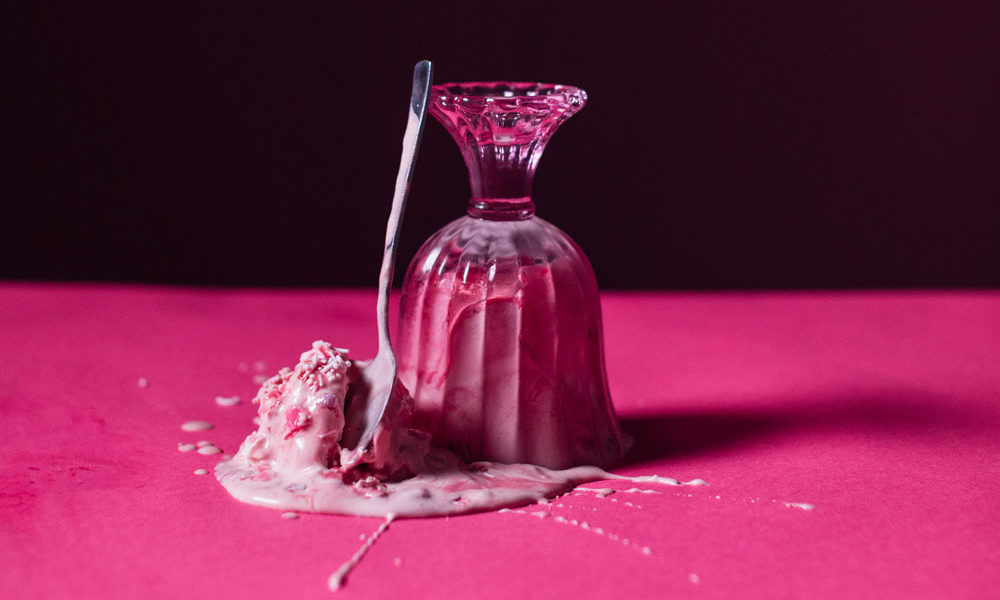Whenever anyone tells me that they cut sugar completely out of their diet, my mind races into two directions: Holy sheet, that’s impressive; and, why, why would you do that? Sugar is lovely and such a treat. I figured, as long as I was active, eating well, healthy, had good teeth, I wouldn’t need to sweat about having sugary things, like the occasional pain au chocolat or a mocha-flavoured coffee.
But with adding a few years to my life and a couple of years working from home, I started to wonder if sugar was doing me any favours. “Should I cut sugar?” I thought to myself after having a homemade cinnamon roll. It was emotional. Every time I thought not to have a sugary snack, it made me want it more. I’d never felt about food this way before, and I finally came to the conclusion that thinking this way wasn’t healthy for my mind. I had to seek out the facts from a few experts: Is sugar really all that bad?
Is sugar responsible for maskne?
What is sugar?
It’s at least 99.8% pure sucrose, reports the Canadian Sugar Institute, pointing to the Canada’s Food and Drug Regulations Division 18. “The purification process can produce different crystal sizes, as well as liquid sugars. These characteristics allow sugar to perform a variety of functions in food products, in addition to providing a sweet taste.”
On a nutrition and ingredients label, though, the definition widens as there are six types of sugar, including fructose, glucose (both come from fruit and honey), lactose (from dairy, a.k.a. glucose and galactose), maltose (from barley), sucrose (glucose and fructose) and xylose (wood-based).
It’s an ingredient used to sweeten the palate, and something, admittedly, I use to break up my day. That includes a handful of Kisses, gummy bears or leftover Halloween candy.

Is sugar addictive?
Science says no. “The research we have to date does not suggest that sugar is ‘addictive’ like a drug,” says registered dietitian, Abbey Sharp, of Abbey’s Kitchen. “At least no more than any other pleasurable activity, like smiling.”
Then she says something that turns a light on, strobing my recent cravings: “The only time that rats exhibited addiction-like behaviour is when they had been previously restricted of sugar. In other words, dieting causes obsession.”
Detox teas and liver cleanses: Legit or scam?
Is sugar good for you? Is it really the worst thing ever?
It’s not bad as much as it’s just not good—it has zero nutrients. I remember learning that when I was a health journalist at a national wellness magazine from a registered dietitian. But with everything I’ve been seeing and reading, I started to question this.
Then, I interviewed nutrition coach Andy La Magna for this how-to-get-abs story. She told me this:
“You can still achieve your goals and still eat foods, like Oreos. It doesn’t have to be just salads and boiled protein.” She adds on that food isn’t sabotaging – “It’s not the end of the world!”– and says it’s about balancing protein, carbohydrates (yes, sugar!) and fats. This way of eating “takes that fear of eating ‘bad foods’ away,” she says. “So, it’s not all bad.” Actually, thinking of any foods as “good” or “bad” can lead to restricting and binging, LaMagna suggests.
And if you are looking to lose weight and wonder if cutting sugar is the way to go, Sharp says ask yourself these questions:
- Is your sugar intake crowding out other nutrient dense foods in your day or week?
- Are you still getting enough protein?
- Are you eating enough healthy fats?
- Are you eating a wide variety of fruits and vegetables?
If you answer no to the first question and yes to the second and third one, “Then I see no harm in adding a sweet to your day,” says Sharp. “Sugar shouldn’t replace naturally nourishing foods, but it can absolutely be regularly added to a balanced plate.”
Find out what balance means to this celeb MUA and jetsetter.
Is cutting sugar good for you?
That depends. Sharp says there’s no hard and fast rule with sugar, like how much sugar should you allow yourself to have, as it all comes down to our individual bodies and lifestyles. But I have friends who do go cold turkey – or cold glyco, rather.
For Toronto pastry chef and National Chocolate Masters winner Nishant Amin, avoiding sugar was a necessity. Diagnosed at 15 with type-1 diabetes, he says his health depends on it. “I have cut table sugar off my diet. I focus more on low-glycemic index foods,” he says, opting for foods that are slow to affect blood-sugar levels. “My main source of carbohydrates are fruits, vegetables and whole grains. My best way to keep blood sugar in control is including more fibres and healthy fats like nuts and seeds, in my daily diet.” He is currently training for the 2022 World Chocolate Masters in Paris, France.
I also know of others who do it as a monthly challenge, much like a Dry January. But if sugar isn’t impacting your health, it’s not necessary to cut it from your life.
How going sugar-free created a business opportunity for this woman.

Is sugar-free better?
I’m not a fan of sweetener. To me, it doesn’t taste the same. It’s more like a distant but very weak cousin to sugar. So, I prefer swapping sugar for no sugar. And it was an easy swap because I went for amaranth coco bark, which was rich and crunchy, checking off all my boxes. But after researching this article, I feel good in knowing that I can trust my body and eat for satisfaction and satiation.
“Sugar is delicious, says Sharp. “While not all foods are nutritionally equal, we can make them morally equal. Sugar can absolutely fit in the context of a balanced diet. I think of it as just a tool in the chef’s toolbox. It’s nothing we need to obsess over.”

